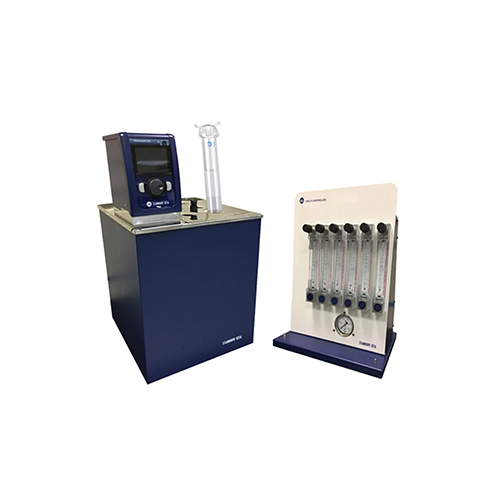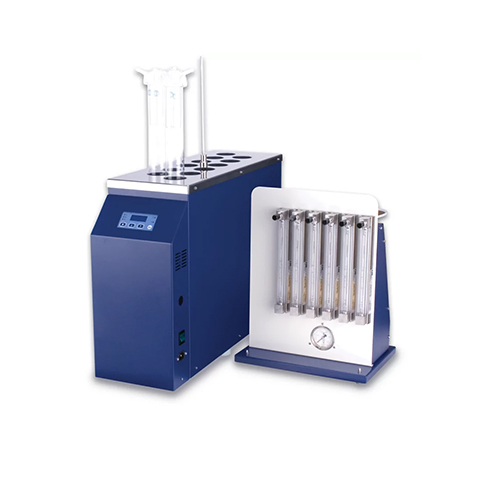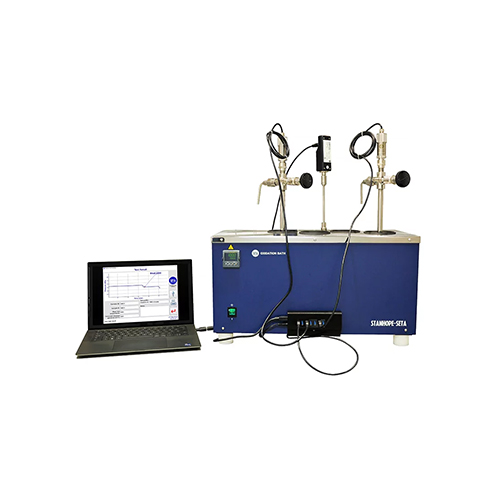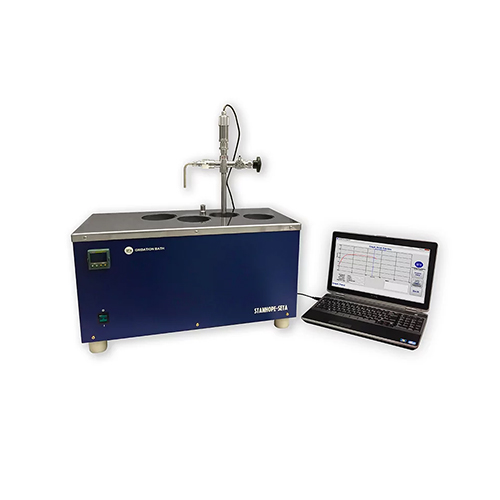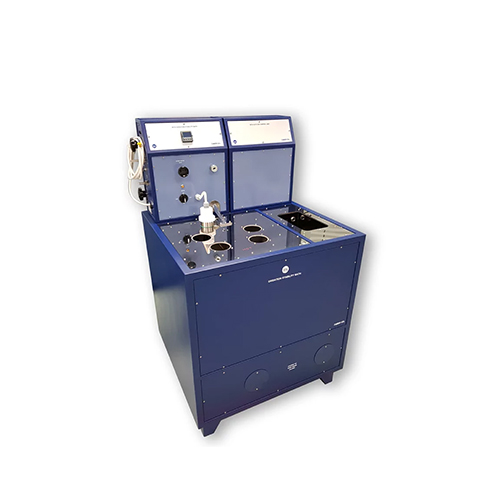Oxidation Bath
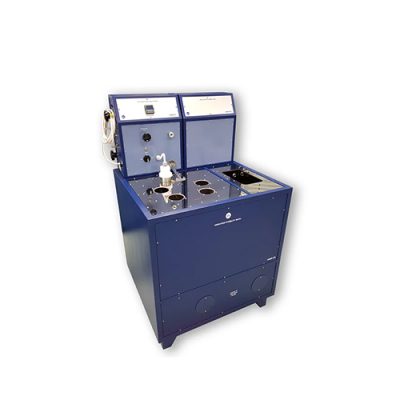
Petroleum oxidation bath instruments are used to evaluate the oxidative stability of petroleum products, such as oils and fuels, under controlled conditions. These instruments simulate the effects of oxygen exposure over extended periods, often in the presence of metallic catalysts, to determine the tendency of fuels to form sludge, acids, and deposits. The oxidation bath typically consists of a heated vessel, temperature control system, and monitoring tools to track changes in the sample’s characteristics, ensuring the durability and performance of petroleum products in real-world conditions. TOST (Thin Film Oxidation Test) is a widely used method for evaluating the oxidation stability of petroleum products, particularly lubricants and hydraulic fluids. This test measures the resistance of these fluids to oxidation under controlled conditions, including elevated temperatures and a constant supply of air. The test results provide critical insights into the longevity and performance of the products under oxidative stress.


